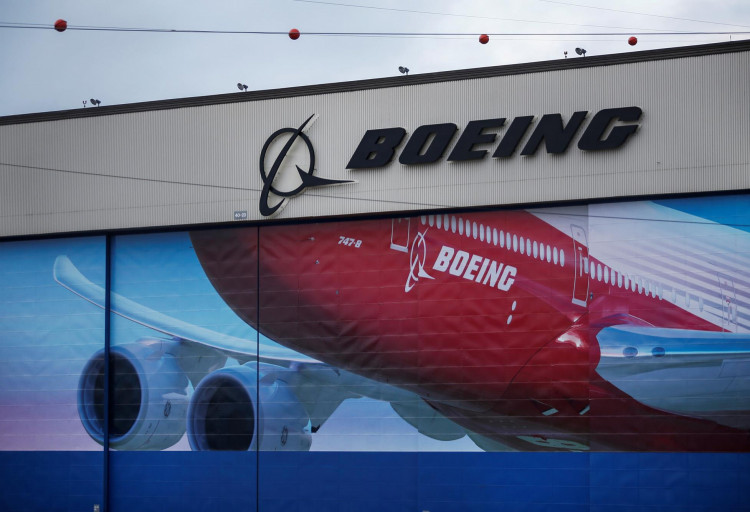Boeing Co. is facing one of its most challenging labor disputes in recent memory as 33,000 unionized workers walk picket lines demanding better pay, benefits, and job security. The strike, which started on September 13, has already cost the aerospace giant and its employees a combined $571 million, according to an analysis by Anderson Economic Group (AEG). As the strike continues, Boeing's financial losses are estimated to grow by an additional $100 million per day, leaving the company in a precarious position.
At the heart of the dispute is a demand for substantial improvements in wages and benefits, with Boeing workers, represented by the International Association of Machinists and Aerospace Workers (IAM) District 751, rejecting a proposed 25% pay raise. Instead, union leaders are pushing for a 40% pay increase and the reinstatement of pensions, both of which have become sticking points in the stalled contract negotiations.
Despite Boeing's dire financial straits, the workers are determined to hold out for as long as necessary. Christopher Dahl, a 10-year veteran at Boeing, explained that the current labor market provides more options than in previous strikes, allowing workers to seek temporary gig economy jobs to make ends meet. "I've gone through every strike because my parents were Boeing employees, so I know the game," said Dahl. "Before, there weren't the options like we have to make money on the side."
Indeed, the tight labor market is offering a safety net that workers didn't have during the last major strike in 2008. Companies such as Uber and DoorDash have provided opportunities for workers to supplement their income, while local businesses around Boeing's Seattle manufacturing hub are actively recruiting new employees. This access to alternative employment is giving workers the confidence to stay on strike for an extended period.
Luis Arteaga, another Boeing employee with 18 years of experience, echoed this sentiment. "There are so many jobs all over the place," he said, pointing to companies like FedEx, UPS, and Red Robin, all advertising for positions. Arteaga, who began saving for this strike two years ago, estimated he could last for several months without a regular paycheck. Others on the picket line believe they could hold out until Christmas or even longer.
Boeing, meanwhile, is feeling the pressure. The company has already implemented cost-cutting measures, including furloughing non-union workers and cutting executive pay. The company has also slashed travel expenses, requiring senior executives to fly economy class in a bid to conserve cash. "We remain committed to resetting our relationship with our represented employees and continuing discussions with the union to reach a new agreement," said Kelly Ortberg, Boeing's new CEO, in a memo to employees.
The prolonged strike could have far-reaching implications for Boeing's productivity and financial health. Patrick Anderson, CEO of Anderson Economic Group, warned that if the strike extends too long, it could significantly disrupt Boeing's ability to meet production deadlines, especially as the company is in direct competition with Airbus for control of the commercial airline market. "Boeing is insulated to some extent, but no company is completely insulated from failing to produce their product on time," Anderson said.
Compounding Boeing's woes is its lack of leverage in this round of negotiations. The company no longer has the option to shift production to lower-cost regions in the Southeastern U.S., where unemployment is also at record lows. Boeing's previous strategy of relocating a portion of its 787 Dreamliner assembly line to South Carolina following the 2008 strike has been a point of contention for IAM members, many of whom see it as a union-busting tactic. This time around, however, Boeing lacks the same maneuverability, leaving it more vulnerable to the strike's impact.
As the work stoppage continues, some analysts predict it could last for weeks, if not longer. Labor expert Jason Greer, founder of Greer Consulting, estimated that the strike could drag on for another two to four weeks, or even longer if neither side budges. "The striking employees are of the mindset that Boeing will have no choice but to give in to their demands," Greer said. Boeing's efforts to cut costs, including the possibility of selling equity to maintain its investment-grade credit rating, suggest the company is preparing for a protracted conflict.
The Biden administration is also monitoring the situation closely. According to IAM International President Brian Bryant, the administration has reached out to offer support and explore ways to get both parties back to the negotiating table. "This isn't just a Boeing issue," Bryant said. "Workers in this country have been left behind. There's a movement here. Workers have said enough is enough."
Despite the high stakes, Boeing workers remain resolute. Many of them have turned to social media to maintain morale and keep each other informed about developments in the negotiations. Bruce McFarland, an IAM officer and Boeing instrumentation technician, noted that the digital connectivity among union members has strengthened solidarity in a way that wasn't possible during past strikes. "We want a fair contract," McFarland said. "But we also want to rebuild Boeing's culture so workers are treated with dignity."





